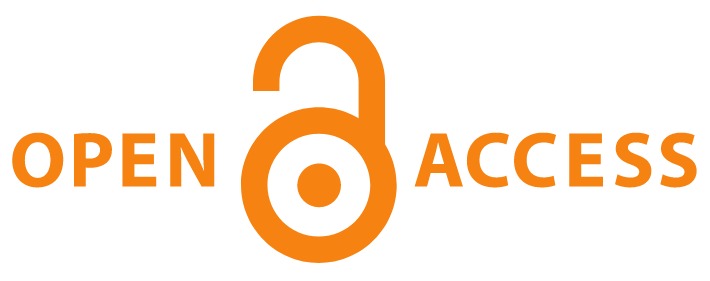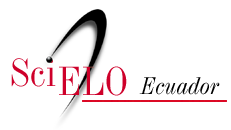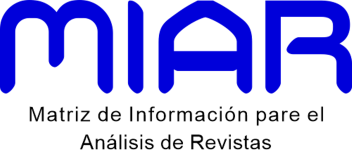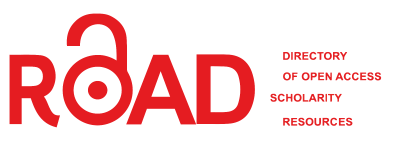ICT for the strengthening of Service Learning Knowledge of University Students. A theoretical approach
DOI:
https://doi.org/10.26423/rctu.v5i2.428Keywords:
service learning, knowledge, innovation.Abstract
This article is a preliminary study of a documentary investigation, referred to the learning service applied by the university students, mediated by the technologies of the Information and the communication. In this sense, this work has as purpose to know the pedagogical practice potentially effective from the academic point of view, through the bibliographical analysis and analysis of previous works. To this end, access was made to both national and international works. Hence the importance of highlighting that there is concern about the demands of modernization and innovation, which assume learning in concrete realities of theoretical, practical, professional integration and service to communities to overcome isolation and give value to joint participation in the solution and understanding of the problems of the surrounding environment. The contribution of this study is projected in the theoretical implications identified for service learning, considered within university education policies to stimulate reasoning and thematic axes, around which the common effort shared with social actors is promoted, to address the real scheme of the sensitive problems of the communities. Finally, the bibliographical references that serve as support for the research are presented, with special emphasis on scientific journals of national and international production, as well as textbooks linked to the topic subject of study, which served as a reference source in the theoretical-methodological study
Downloads
References
Aquino, C. (2002). Una gestión participativa y de alianza para el cambio. San José: Instituto Interamericano de Cooperación para la Agricultura.
Ardila, J. (1998). Sistemas nacionales de investigación agropecuaria en América Latina: análisis comparativo del recurso humano en países seleccionado. El caso del Instituto Colombiano Agropecuario. Colombia: Instituto Interamericano de Ciencias Agrícolas.
Bandura, A. (1977). Social learning theory. New Jersey: Englewood Cliffs.
Deeley, S. (2016). El aprendizaje servicio en educación superior. Teoría, práctica y perspectiva crítica. Madrid: Narcea.F
olgueiras, P., Luna, E y Puig, G. (2013). Aprendizaje y servicio. Estudio del grado de satisfacción de estudiantes universitarios. En: Revista de Educación. Nº 362. Septiembre-diciembre. 159-185.
Goffnett, S., Keith, O y Buschlen, E. (2013). Integrating service-learning and humanitarian logisticseducation. En: Journal of Humanitarian Logistcs and Supply Chain Management. 3 (2). 161-186.
Martínez, M. (2008). Aprendizaje servicio y construcción de ciudadanía activa en la Universidad. La dimensión social y cívica de los aprendizajes académicos. Barcelona: Universitat de Barcelona.
Martínez, Mª. (2011). Participación social del estudiante universitario. Estatuto del estudiante universitario. En: XII Congreso Internacional de Teoría de la Educación. Barcelona: Universitat de Barcelona.
Natorp, P. (1913). Pedagogía social. Teoría de la educación de la voluntad sobre la base de la comunidad. [Traducción: Sánchez, A]. Madrid: La Lectura.
Piñero, L. (2012). Identidad y aprendizaje personal del estudiante universitario en el cumplimiento del servicio comunitario. En: REDHECS. 12 (7). Octubre 2011-Marzo 2012. 125-139.
Puig, J. M.; Batlle, R; Bosch, C. (2007). Aprendizaje servicio: Educar la ciudadanía. Barcelona: Octaedro.
Puig, J. (2010). (Coord.). Aprendizaje servicio (ApS). Educación y compromiso cívico. (2ª reimp.). Barcelona: Graó.
Puig, J. M. (2014). En busca de otra forma de vida. En Revista digital de la Asociación Convives No. 7, Madrid. P. 32 –37.
Rodríguez, C. (2012). La metodología del aprendizaje servicio. Ciudad Guayana: Universidad Nacional Experimental de Guayana.
Rodríguez, O. (2008). La sensibilización: coincidencia en la formación del ser humano y cultivo del espíritu a través de la educación holística. Tesis doctoral no publicada. Universidad Interamericana de Educación a Distancia de Panamá, Panamá.
Sánchez, G. (2012). Currículo abierto y academicista. [Documento en línea]. Disponible: https://prezi.com/dykqoz2auukl/curriculo-abierto-y-academicista/ [Consulta: 2018, Marzo 23].
Santos, M. (2013). ¿Para cuándo las universidades en la agenda de una democracia fuerte? Educación, aprendizaje compromiso cívico en Norteamérica. En: Revista de Educación. Nº 361. Mayo-Agosto, 2013. 565-590.
Styhac, J. (2002). A la luz del posmodernismo en las organizaciones. Colombia, Bogotá: Norma.
Udaondo, M. (1996). Gestión de calidad. Madrid: Díaz de Santos.
Valiente, T. (2003). Ciudadanía, Interculturalidad y formación docente. En: Vigil, N y Zariquiey, R. (2003). (Edits.). Ciudadanías inconclusas. El ejercicio de los derechos en sociedades asimétricas. Perú, Lima: Pontificia Universidad Católica del Perú.193-203.
Vernet, M. (2017). Unique service-learning in Barcelona. In: Lavery, S., Chambers, Cain, D. (eds.) Service-Learning. (International Perspectives on Inclusive Education. Volume 12). Bingley: Emerald Publishing Limited.159-173.
Downloads
Published
Issue
Section
License
El titular de los derechos de autor de la obra, otorga derechos de uso a los lectores mediante la licencia Creative Commons Atribución-NoComercial-CompartirIgual 4.0 Internacional. Esto permite el acceso gratuito inmediato a la obra y permite a cualquier usuario leer, descargar, copiar, distribuir, imprimir, buscar o vincular a los textos completos de los artículos, rastrearlos para su indexación, pasarlos como datos al software o usarlos para cualquier otro propósito legal.
Cuando la obra es aprobada y aceptada para su publicación, los autores conservan los derechos de autor sin restricciones, cediendo únicamente los derechos de reproducción, distribución para su explotación en formato de papel, así como en cualquier otro soporte magnético, óptico y digital.













